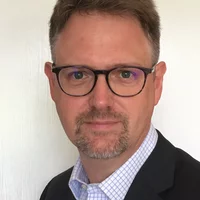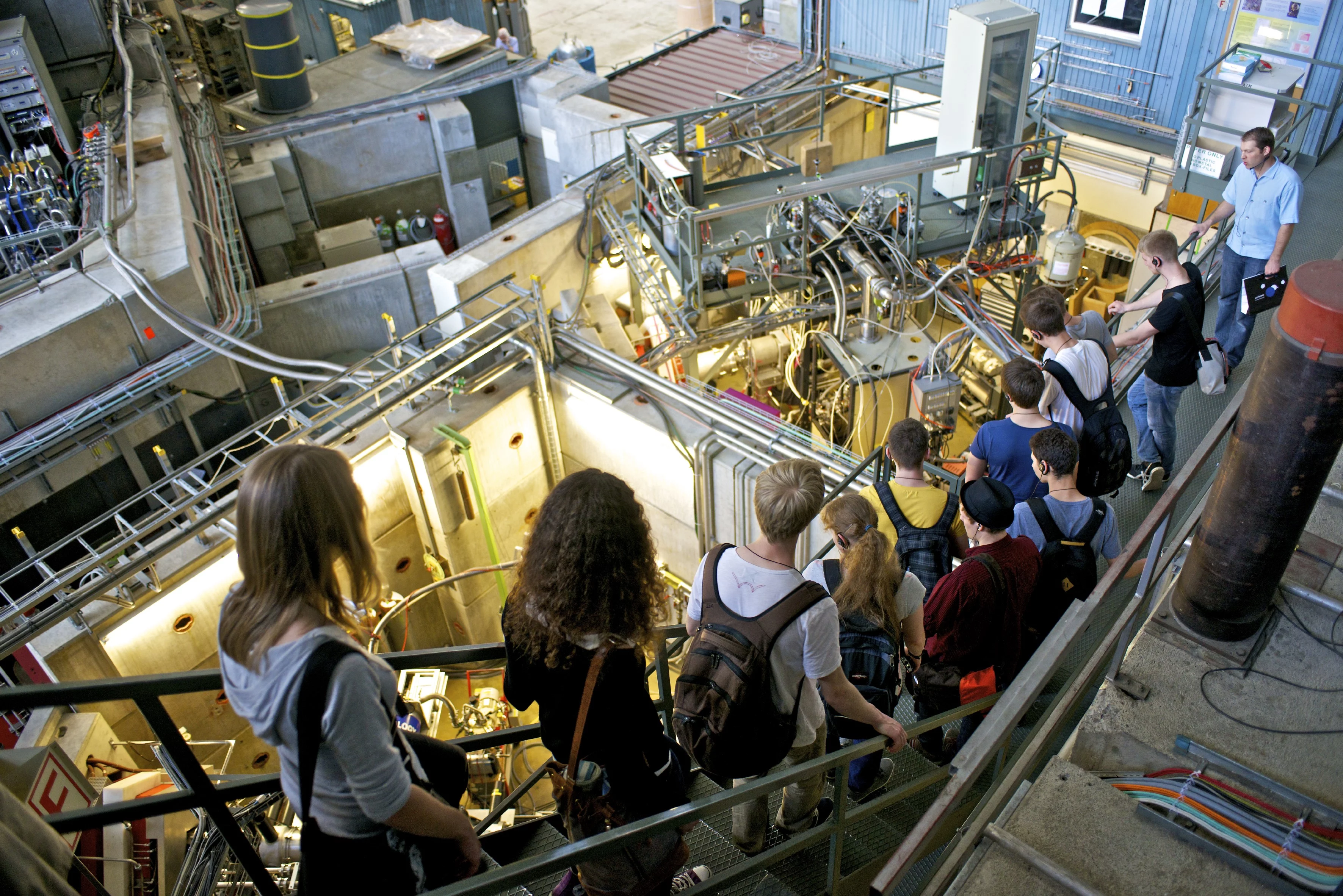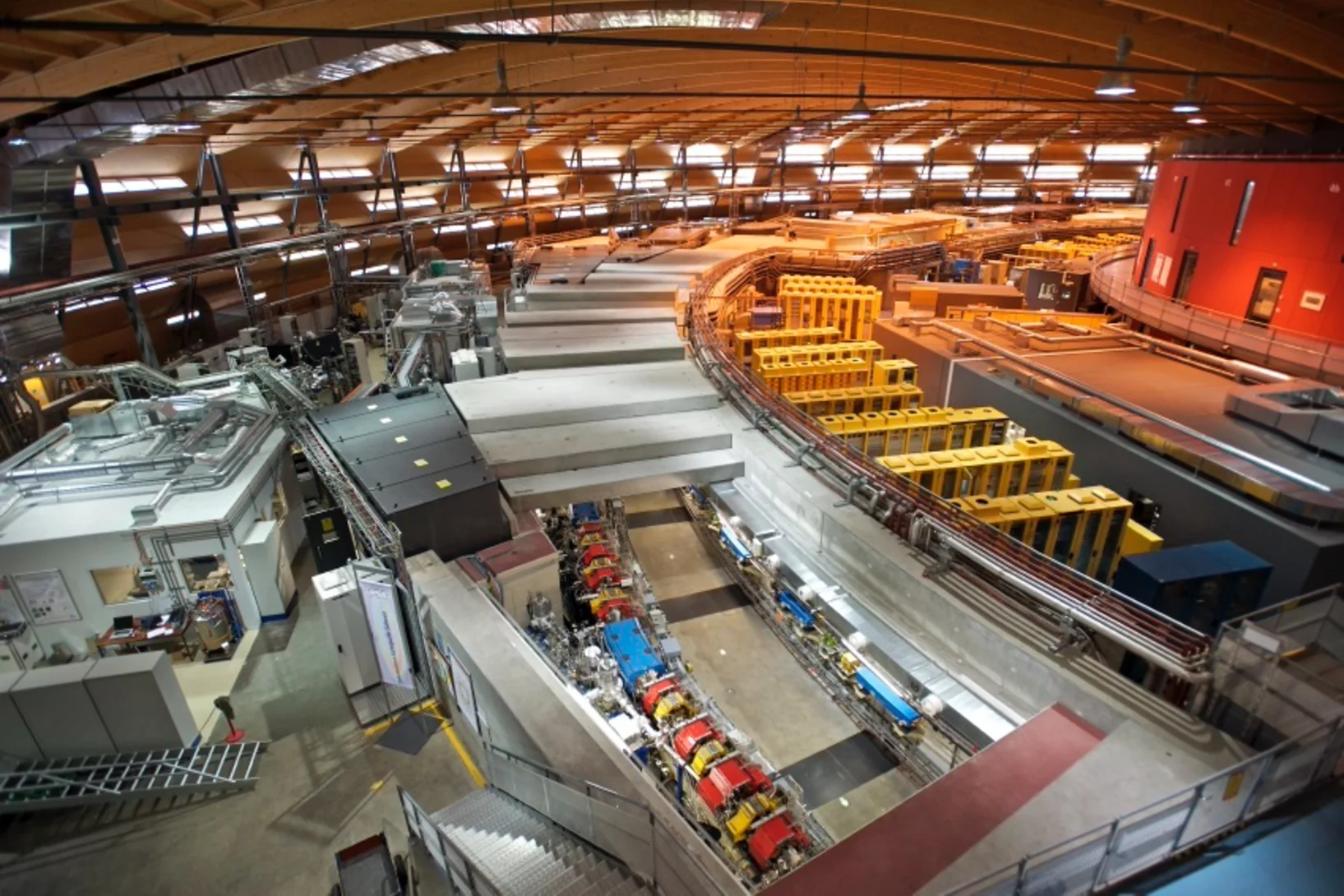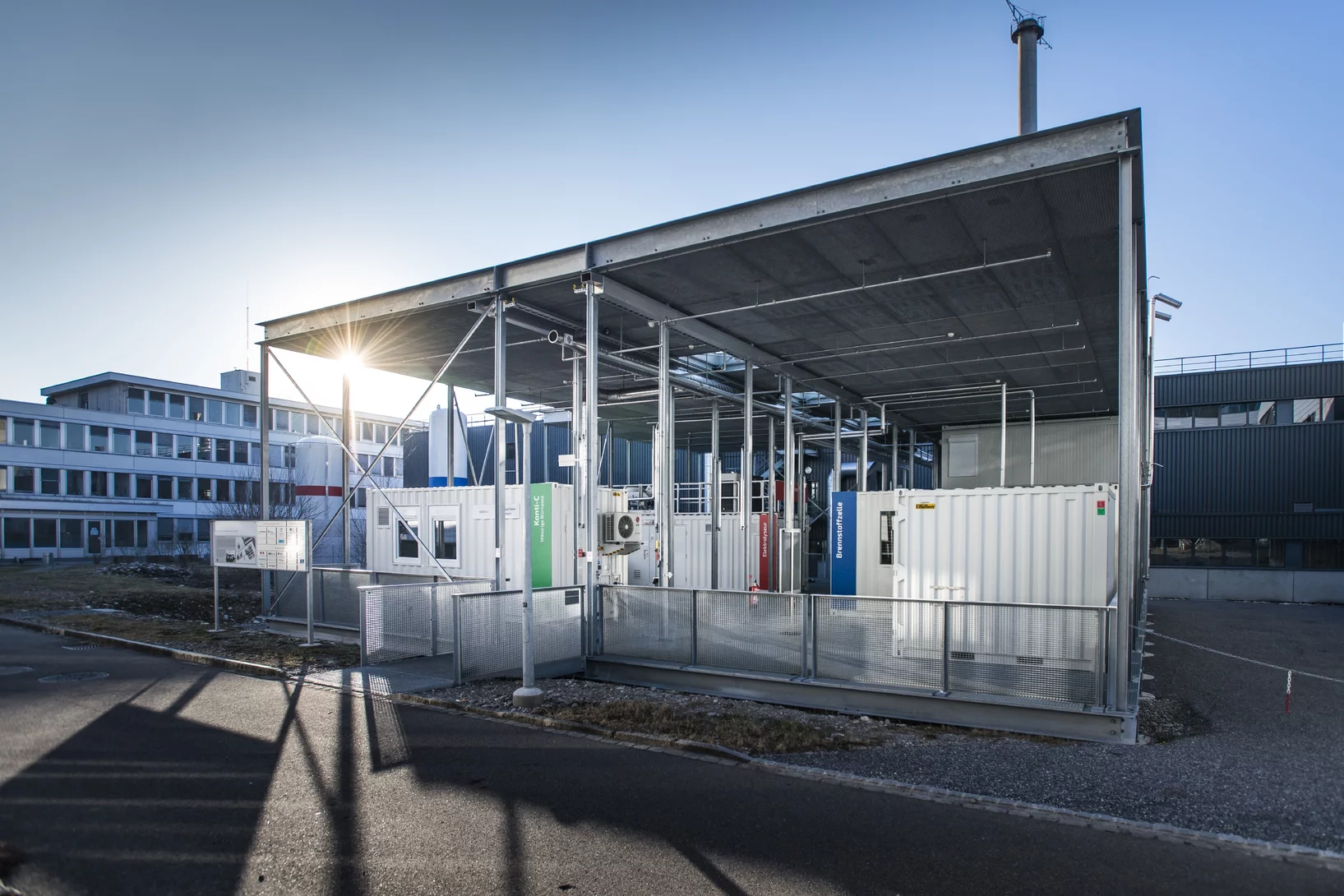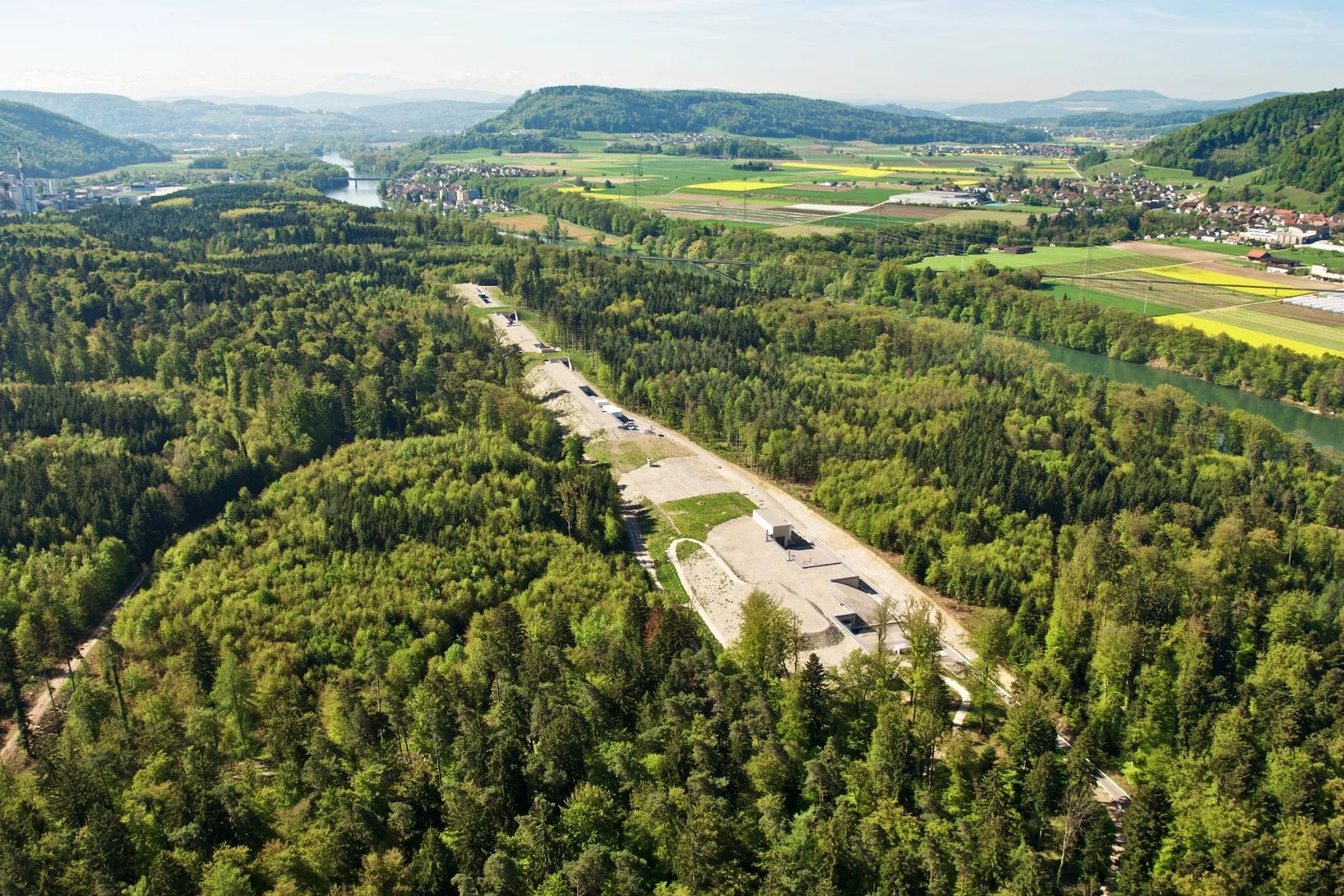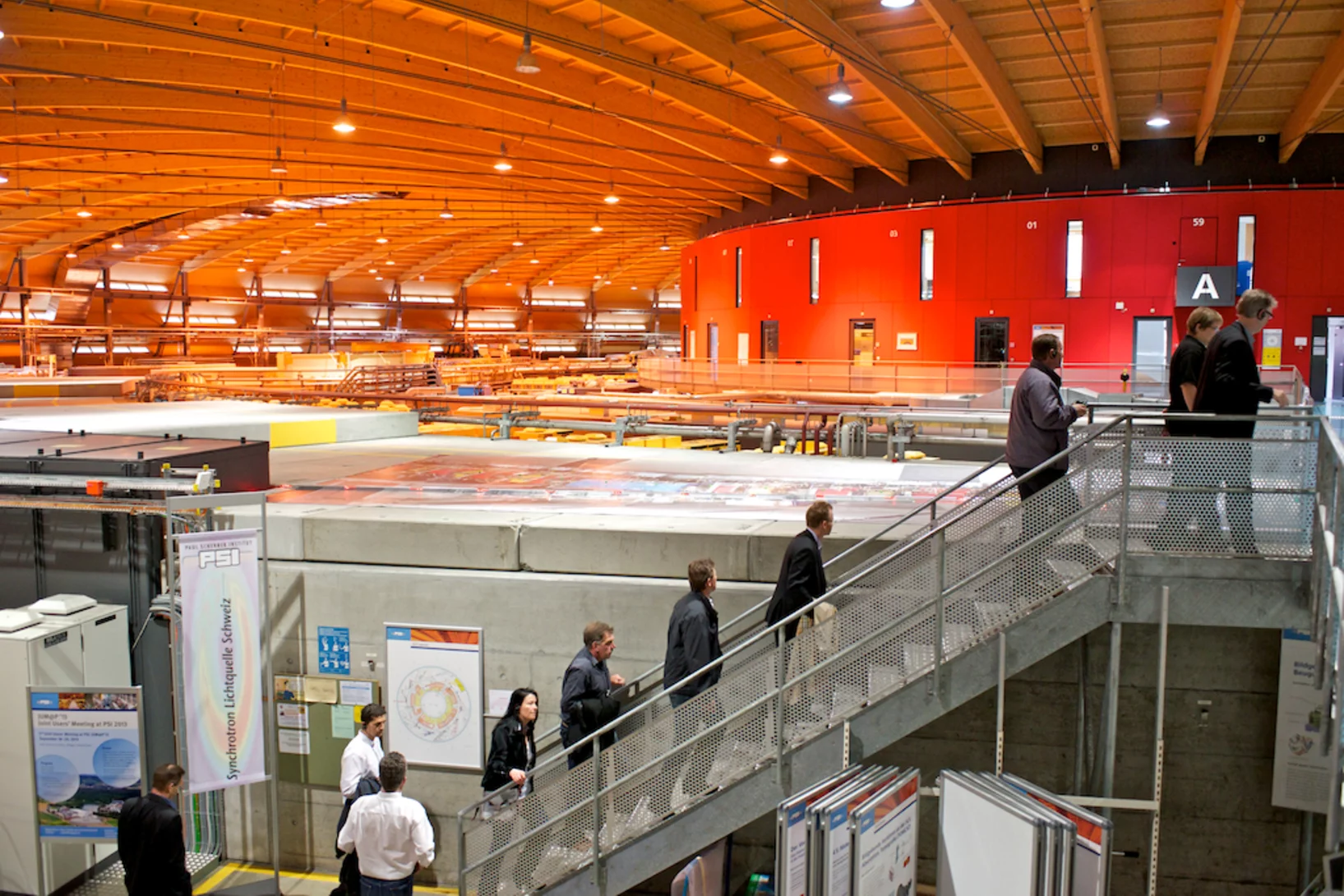Would you like to organise a group tour? We offer customised tours for groups of 12 participants and more. These tours are free of charge and should be booked approx. 4 weeks in advance. Subject to confirmation by the Visitor Centre team, this offer is available from Monday to Friday. The latest start for a big tour is 4 pm. All of our tours are free of charge.
The latest start for a grand tour is 4 pm.
This is what your grand tour at PSI could look like
After an overview presentation on the Institute's activities, 13 interactive theme islands in the exhibition invite you to familiarise yourself with the main areas of research in greater depth.
The subsequent tour will take you to our research facilities. You will be accompanied by a PSI expert.
The tour is offered in German, English or French (other languages by arrangement).
Duration: 2 to 3 hours
Guided Tours
Are you interested in a grand tour, but are still undecided as to which topic is best suited to your group?
PSI has several large-scale research facilities where experiments are carried out that are not possible in smaller laboratories. All of these large-scale facilities are unique in Switzerland; in fact, some of them can only be found at PSI worldwide. In addition, the PSI operates the ESI platform (ESI stands for "Energy System Integration"), an experimental platform where promising concepts for the energy system of the future are tested.
You can experience how these complex systems are operated and which applications are being researched on a tour in a unique environment. There are various tours to choose from.
We would also be happy to advise you personally: call us on +41 56 310 21 00 or write to us at visitorcenter@psi.ch
Contact
PSI Visitor Center
Paul Scherrer Institute
Forschungsstrasse 111
5232 Villigen PSI
Switzerland
